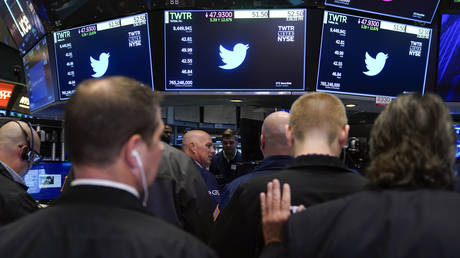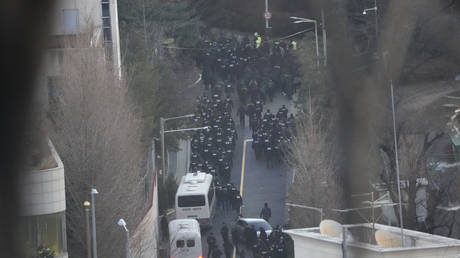Older workers might be better — or at least just as good — as their younger peers when it comes to using AI. But age bias often persists.
Alex Slitz/Associated Press
Older workers can excel with artificial intelligence, matching or even surpassing younger peers.But despite their skills, hiring managers often favor younger workers, surveys show.Age bias in hiring persists, affecting both older workers and Gen Z candidates.
Score one for the digital interlopers.
It’s possible that older workers might be better at using artificial intelligence — or at least just as good as Gen Zers and others born into a time of digital plenty.
Mona Mourshed, founding CEO of Generation, a nonprofit network focused on economic mobility, told Business Insider that research shows seasoned workers can more than hold their own with AI.
“You can not only write a better prompt, but you can also triangulate better results,” she said.
But older workers don’t always get the chance. Surveys, including one from Generation, suggest that many people in charge of hiring favor younger workers even though the same managers report that the older workers they’ve brought on have worked out well.
This is an important finding because while the job market is still strong, it has cooled from a couple of years ago. That’s led some job seekers who aren’t fresh out of school to report they’ve struggled with finding new roles, especially in areas like tech, where employers have cut back and where youth is lionized in industry culture.
Older workers face headwinds
In the Generation survey, conducted with the Organization for Economic Cooperation and Development, about four in 10 employers said they would hire someone between ages 20 and 29. About half said they would choose people ages 30 to 44.
But for workers older than that, the picture is less bright: Only about one-third of employers said they would hire someone aged 45 to 54. And above age 55, employers’ willingness to hire drops to 13%.
Mourshed said those headwinds are a key reason that 40% of the long-term unemployed in the US are mid-career, older workers.
Vern Six, who’s in his late 50s, previously told BI that his more than three decades working in tech have made it harder for him to get a new role. One recruiter, after reviewing his experience, said he was surprised that Six wasn’t a chief technology officer, Six said.
The recruiter went on to say, “That’s going to be a hard sell. I don’t even know if I can pitch you to any of my clients. They’re all going to wonder why you’re not a CTO or at the C-level.”
Six said he was stunned the recruiter would say that.
Focus on ability, not age
One problem facing older workers is that they can be judged on their age, not their experience or their ability and willingness to learn.
Marga Biller, senior project director at Harvard University’s Learning Innovations Laboratory, told BI that a desire to learn matters more than age. Older workers can keep up with their younger counterparts as long as those with more experience aren’t too wedded to how they’ve done things in the past.
“It’s going back to the mindset, ‘How well can you learn?'” she said.
And learning on the job often takes dedication — and a willingness to shift how work gets done. It’s easy, for example, for workers of any age to report using AI. But some might dabble while others go deep. That can make a difference, according to Karie Willyerd, chief learning officer in residence at the training platform Skillable.
“We could both say we have the habit of using, let’s say, Copilot or ChatGPT all day long, but we could be using it in very different ways based on our mindset about what it can do and not do,” she told BI.
Employers that dismiss older workers risk missing out on strong talent, according to Tom Murray, president of the executive search and leadership advisory firm Heidrick & Struggles.
He noted that one role seeing strong growth is the chief AI officer. Murray said that’s the type of job where know-how around managing teams and setting strategy is important. Experience can pay big dividends for those types of tasks.
“You have to run orgs that are that are very scaled — that everyone feels like will most likely be the fastest-growing organization within their company,” Murray told BI.
He said many employers are rightly focused on developing the next generation of talent through hiring and helping build the skills of their existing workforce. He said it’s also important for employers to have a plan for snagging more experienced workers.
“You have to be able to attract, develop, and retain that talent,” Murray said.
Ultimately, both older and younger workers can face challenges when those doing the hiring are of a different generation. In early 2024, Resume Builder reported that about one-third of hiring managers said they were biased against Gen Z candidates. A similar proportion voiced concerns about hiring candidates over 60.
“You need to be aware of pitfalls like age bias,” Stacie Haller, the chief career advisor at Resume Builder, previously told BI. “You have to know the landscape you’re in.”





+ There are no comments
Add yours